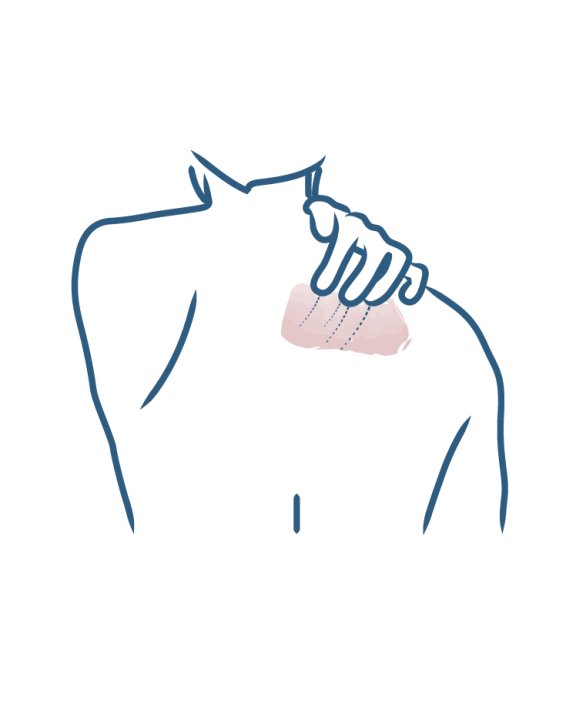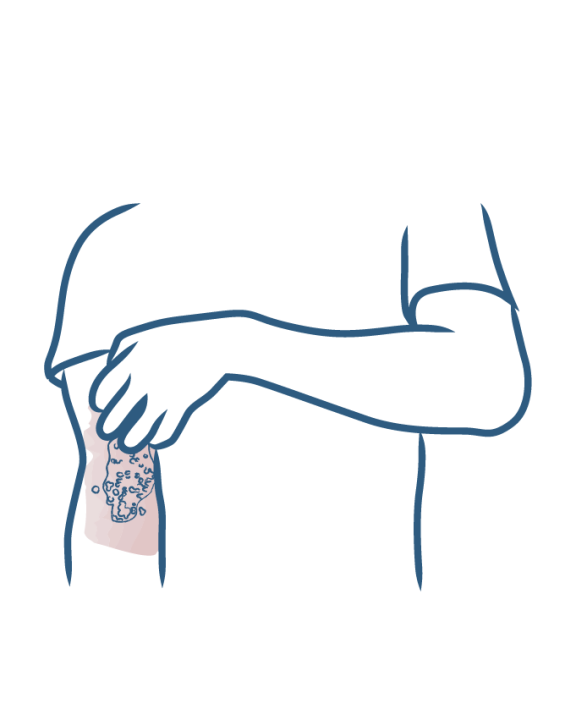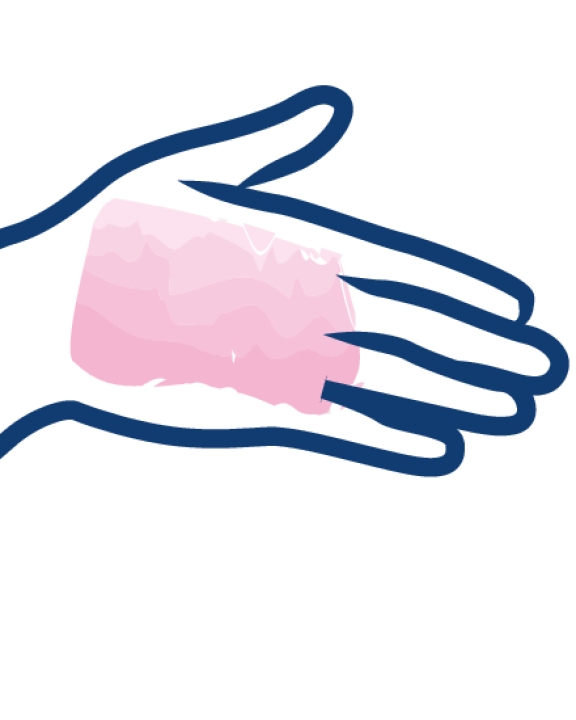Occupational dermatoses
- SUMMARY
- Eczema
Occupational dermatitis in the healthcare profession
- Living with eczema day to day
- What soap should be used for eczema?
- Eczema cream, ointment: what should you use?
- Eczema: can it be cured?
- Eczema: how to treat itching
- Swimming pool, swimming when you have eczema?
- Which detergent should eczema patients use?
- Eczema: how can flare-ups be avoided?
- What are the habits to avoid when you have eczema?
- Eczema: What daily reflexes should you adopt?
- Eczema: what foods should you eat?
- What causes eczema?
- Clothing contact eczema
- Contact eczema due to cosmetics
- Contact eczema due to nickel and chromium
- Stress-induced eczema
- Hereditary eczema
- Perspiration-induced eczema
- Contact eczema due to cleaning products
- Allergy-induced eczema
- Contact eczema due to medication and topical treatments
- Body eczema: hands, feet, arms, back, face, etc.
- Arm eczema (elbows, armpits, forearms)
- Eczema of the eyelids, eyes or palpebral eczema
- Foot eczema
- Eczema around the mouth
- Leg eczema or varicose eczema
- Eczema in the ears
- Hand and finger eczema (chronic hand eczema)
- Facial eczema
- Eczema on the stomach and belly button
- Eczema on the neck and nape of the neck
- Scalp eczema
- Eczema on the back
- What is infantile eczema?
- What soap should be used for babies with eczema?
- Eczema in babies and children: the areas most often affected
- Eczema in babies: what habits should you adopt?
- Cortisone cream to relieve eczema?
- How should you treat baby’s and infant’s eczema?
- When should you consult a physician about your baby's eczema?

Occupational dermatitis in the healthcare profession
The skin of healthcare professionals is regularly put to the test, particularly on the hands: repeated washing, wearing gloves, handling chemicals, etc. This leads to the appearance of occupational dermatosis, which is a source of discomfort for healthcare workers.
Which healthcare professionals are concerned by occupational eczema?
Occupational dermatitis in healthcare workers affects all types of caregivers: physicians, pharmacists, nurses, nurses' aides, etc.
A history of atopic eczema or allergic eczema is sometimes found but is not always observed. Occupational dermatosis can set in overnight, in people without any skin problems. Occupational dermatosis can be recognized as an occupational disease in its own right and lead to a career change being necessary.
What are the substances involved?
Occupational dermatitis in healthcare workers can be caused by a wide variety of substances: those applied to the hands (hydro-alcoholic solution, disinfectant soap, gloves, etc.), those applied to the patient at the time of care (antiseptic, dressing glue, etc.), those used in the hospital for disinfection purposes (formaldehyde, bleach, etc.).
There are two types of occupational dermatitis in healthcare workers: on the one hand, there is irritant dermatitis, because most of the substances mentioned above are irritating; on the other hand, there are allergic contact eczemas, during which the caregiver develops a genuine immune reaction to the substance, such as allergy to formaldehyde or allergy to an antiseptic.
How can you avoid occupational eczema?
Occupational dermatoses in healthcare workers can be avoided by taking a few simple measures. Among them, the wearing of gloves is essential, both to protect yourself, protect others and preserve your skin. In case of allergy to gloves, change the material to be able to continue wearing them. Taking care of your hands also involves a few simple rules. Wash your hands with mild soap and water whenever possible. To compensate for the sometimes-drying effect of hydro-alcoholic gel, apply an insulating barrier cream before and during the working day.
More information
- Discover Occupational dermatosis in the construction and public works industry
Occupational dermatoses
Occupational dermatosis in the construction and public works industry
- Discover Occupational dermatitis of cleaning staff
Occupational dermatoses
Occupational dermatitis of cleaning staff
Our care routines
Skin prone to atopic eczema, contact eczema, chronic eczema and/or, eyelid eczema
Dermatological expertise
To better understand your skin and hair, discover our exclusive content and innovative care products designed to improve your quality of life..





